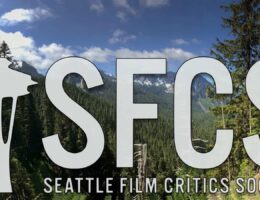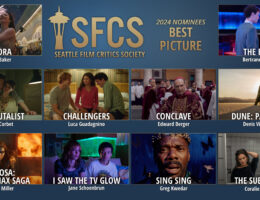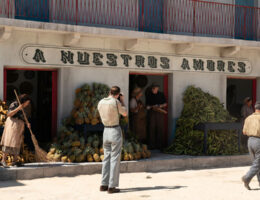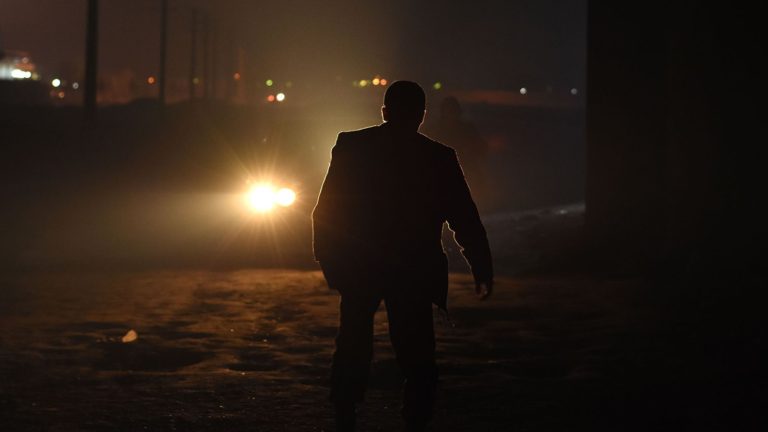Official Competition films There is No Evil and Under the Open Sky had found a perpetual spot on my “watch later” queue, but when I saw that they secured top spots among the audience awards, I knew that I had to use the waning hours of SIFF Privilege to make them my Closing Night double feature (with apologies to Rosa’s Wedding).
There Is No Evil (2020 | Germany | 150 minutes | Mohammad Rasoulof)
There Is No Evil, Mohammad Rasoulof’s jewel-box anthology was a surprising audience choice for the festival’s top prize. Comprised of four short interrelated films, the project’s uniting theme is addressing — tangentially or directly — the corrosive effects of capital punishment in Iran. The opening segment tracks an ordinary day in the life of a middle aged man as he navigates a seemingly mundane routine of family errands and ends with a chillingly clinical yet extraordinary reveal. Next, we spend a deeply conflicted evening in a bunker with enlisted men as they hash out a late-night debate about their participation in state executions; what begins as a series of philosophical arguments and excuses takes a turn that’s nervy, thrilling, and surprising. Later, a sweet pastoral romance in the lush green countryside is cast off course by grim serendipity. The final vignette sees a couple of rural doctors welcoming a family friend’s daughter from abroad. As the reason for her initially mysterious visit to their remote farm becomes apparent, it threads a link through the previous installments.
Despite each of the sections operating in different filmmaking modes, they are linked by both theme and a structure that relies on each episode having a twist that pulls the proverbial stool out from under the audience, recasting what we’ve just seen with depth, shading, and context. Amazingly, the production was largely accomplished in secret during a ban on filmmaking that Iran had placed on Rasoulof (after the film premiered at Berlin in 2020, where it won the Golden Bear, he was sentenced to a year in prison for what the regime deemed to be “propaganda against the system”. Despite these production challenges, each of the segments looks great — from the closely-observed domestic scenes and stuffy soldier bunkhouses to the verdant flowery hillsides and the wide open red dusty vistas.
I had procrastinated on watching the film given the synopsis, incorrectly expecting a series of excruciating stories about people on death row, themselves. Rasoulof barely shows the people whose lives are taken by the state, pointing the camera instead on the people who are tasked — or, more often, forced through compulsory military service — to participate in these killings. Their complicity or resistance, and the consequences, are the philosophical engine of the film. I can see how this blend of able filmmaking, varied stylistic approaches, and the compelling subject matter secured it first place in audience balloting where the top film and and fourth runner up were reportedly separated by less than 0.2 points.
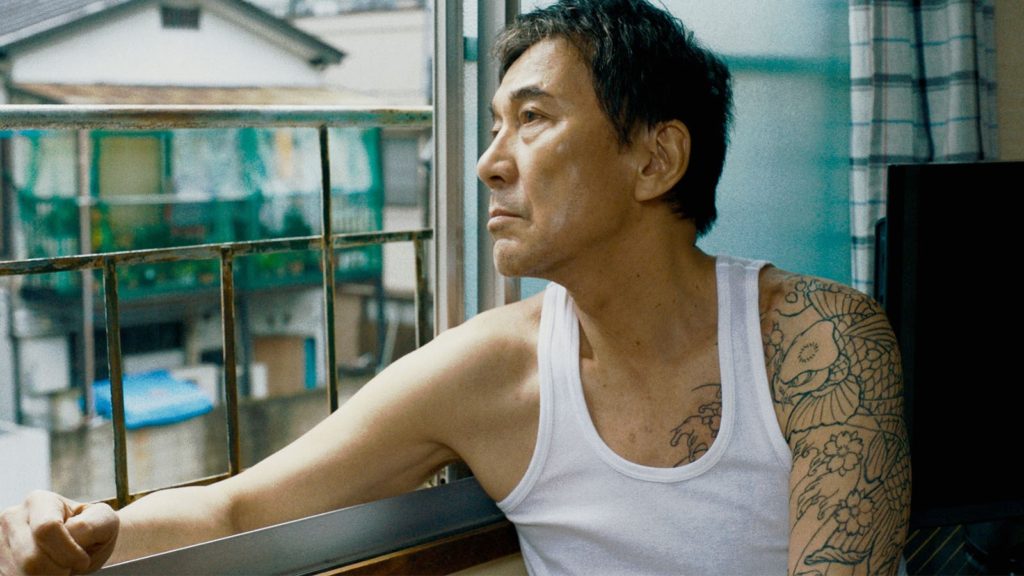
Under the Open Sky (2020 | Japan | 126 minutes | Miwa Nishikawa)
I suspect that the strong central performance from Yakusho Kōji as yakuza gangster Masao Mikami is what carried Miwa Nishikawa’s Under the Open Sky to second place among SIFF audiences (scoring it the Lena Sharpe Persistence of Vision Award as the highest rated feature by a female filmmaker). We meet Mr. Mikami, a gang enforcer with a troubled past, just as he’s being released from a thirteen year stint in prison for killing a man who threatened his wife. He steps through the prison’s gates into the wide snow-covered world, deep into middle age with chronic health conditions, and freshly committed to living a straight life.
His attempts to adapt to a changing society while suppressing his old violent impulses gives Yakusho a lot of material: resigned sadness and frustration at the prospect of accepting welfare, quiet delight and emotional overflow at the kindness of others and the beauty of the natural world, and explosive rage at signs of disrespect or mistreatment of others. Amid forming a friendship with a local grocer and making strides to rekindle old connections, Mikami also occasionally is unable to resist the righteous draw of street vigilanteism be it against noisy neighbors or badly-behaved bullies preying on the weak.
Like the ex-con’s bumpy path back to society, though, the film gets lost indulging overly broad and extraneous meanderings. A subplot concerning a hapless writer recruited to turn the Mikami’s life story and desire to reunite with the mother who abandoned him largely exists as a framing device to inject expository backstory, but also takes a swing at being both a goofy rom-com and later morphs into sentimental buddy picture. In a gesture toward making broader statements, Nishikawa has Mikami’s journey of self-reform intersecting with the administrative hurdles of the Japanese welfare state, the fading glamor of the yakuza, the complexities of passing a driving test, and lightly interrogating various forms of societal prejudices. It’s a lot of range and an often empathetic performance punctuated by touching moments, but one wishes for more coherent arc rather than so many exhausting oscillations between extremes.
Both films played in the Official Competition at the 47th Seattle International Film Festival (where Little Girl took the grand jury prize). Keep up with us during the festival on Twitter (@thesunbreak) and follow all of our ongoing coverage via our SIFF 2021 tags.
